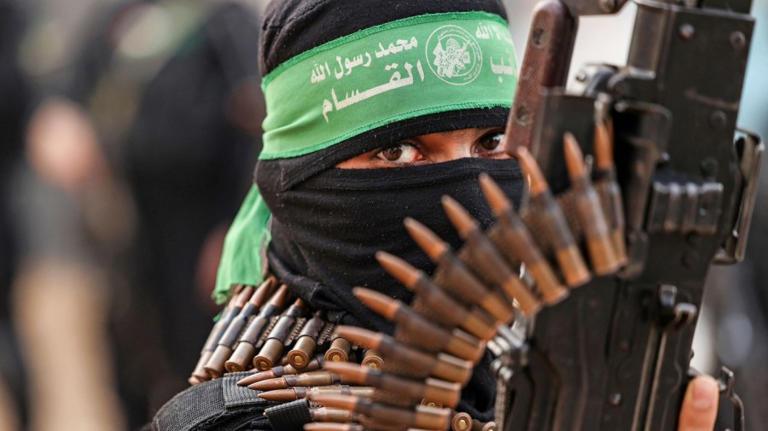
Treat Hamas like ISIS: Use financial warfare to crush them
In its brutal terror attacks targeted at civilians from 43 countries, Hamas adopted ISIS’s playbook, conflicting directly with the values of civilized society, while simultaneously posing a threat to other Western democracies, as highlighted by FBI Director Christopher Wray.
During my time as chair of Israel’s Money Laundering and Terrorism Financing Prohibition Agency, I learned how funding plays a pivotal role in the operational capabilities of terrorist and criminal organizations. I witnessed time and time again the effectiveness of cutting off terror organizations’ financial resources — their oxygen. Doing so in a global coordinated effort has proven to be a very effective strategy as we’ve learned from the success in the cases of ISIS and al Qaeda.
As I outlined last month to policymakers on the Senate Banking Committee on Combating the Networks of Illicit Finance and Terrorism, our strongest strategy to abolish Hamas’s terrorism is to initiate a global coalition of financial warfare.
The planning and execution of Hamas’s Oct. 7 attacks required a well-established infrastructure and substantial budget, potentially running into billions of dollars when including the extensive underground tunnels, preparations to hold hundreds of hostages for a long period and the wide array of weaponry, vehicles, drones and motorized parachutes used on the ground at the attack.
Hamas’s financial resources are diverse, relying on state sponsorship, primarily from Iran and Qatar, alongside revenue generated from its business and investment portfolios, taxes levied on Palestinians and contributions via social media fundraising campaigns often concealed as humanitarian aid.
These funds flow to Hamas through various channels, including bank transfers, money remittances and exchanges (especially in Turkey and Lebanon), and informal financial setoff systems like “Hawala,” as well as cash, trade-based commerce and virtual assets (crypto currency). To defeat Hamas, it’s essential that we understand and target all resources and channels.
Drawing parallels with previous counterterrorism efforts and the creation of a global coalition against groups like ISIS and al Qaeda, an effective global financial strategy must be established. We must acknowledge that this cannot be done by one country alone but requires global efforts, as funds are flowing around the globe.
A critical step in pursuing successful financial combat against Hamas is forming a global coalition. The United Nations Security Council should join the U.S., European Union and other countries in designating Hamas as a terror organization, creating a global designation that will ensure that all financial institutions worldwide screen for and freeze Hamas-related assets, even in remote regions less aware of Hamas’s activities and in all currencies.
Furthermore, the U.S. Treasury should continue expanding its designations on Hamas, actions already in progress in its Oct. 18, Oct. 28 and Nov. 14 designations. The U.S. should also strongly impose secondary sanctions on non-compliant stakeholders, such as Turkish financial institutions that allegedly allow Hamas funds to flow unhindered.
Further, enhancing transparency on Hamas’s neighboring economies and funding methods is imperative. This includes examining Hezbollah’s role in the Lebanese economy, evaluating the Palestinian Authority’s financial system, the flow of funds from Turkey and Qatar, through charity organizations, trade-base activity and more. Such clarity will provide the public and private sectors with the tools to better monitor and mitigate terrorism financing risks.
In addition, there should be a focused effort on the emerging trend of Hamas’s use of virtual assets. The U.S. should promote the implementation by all countries of the global regulatory framework developed by the international organization that sets global standards in the field, the Financial Action Task Force.
The framework, which I took part in shaping as a senior executive at the task force, requires all countries to impose the full set of anti-money laundering and terror financing rules on virtual assets, providing monitoring capabilities on the flow of funds. This framework has already proven to be very effective, as demonstrated in the confiscation of millions of dollars worth of Hamas’s crypto by Israel.
To date, 75 percent of the countries have not fully implemented this framework, creating vulnerabilities and regulatory arbitrages, “weak links” in the chain. The U.S. should urge the Financial Action Task Force to publish a “grey list” of jurisdictions that haven’t fully adopted and implemented the global framework or conducted appropriate supervision. Additionally, the U.S. should consider taking specific actions and designations against non-compliant crypto exchange platforms, which are often situated in non-compliant countries, for example, China, which might have broader interests in disrupting the global economy.
Lastly, law enforcement agencies should create a global ad-hoc task force, similar to what has been conducted in countering ransomware attacks. This includes the establishment of swift information-sharing channels with the private sector, particularly all ranges of financial institutions and supporting regulation technology companies that provide compliance services for the financial sector. These would provide red flags, typologies and keywords used by terrorists, to ensure accurate monitoring of transactions by the private sector in real-time.
Experience shows that building such a strategy — including the formation of a global coalition, sanctions, mapping and monitoring funds while focusing on high-risk areas, intelligence and information sharing among public and private entities — was a crucial part of the successful combat against terrorist organizations like ISIS and al-Qaeda. The global community must stand united in this endeavor. Failing to address terrorism financing allows it to thrive and expand into other Western countries.
For me, this is not just a professional discussion; it’s also a personal one. I lost people dear to me in the Oct. 7th attacks. We must send a clear message to Hamas that there is no tolerance for such heinous crimes and that its funding is a crime in itself, warranting aggressive action.
The fight against terrorist financing is complex, but it’s a battle we must win. Together, we can ensure that such tragedies do not happen again, not in Israel or in any other country.
Source » msn.com





